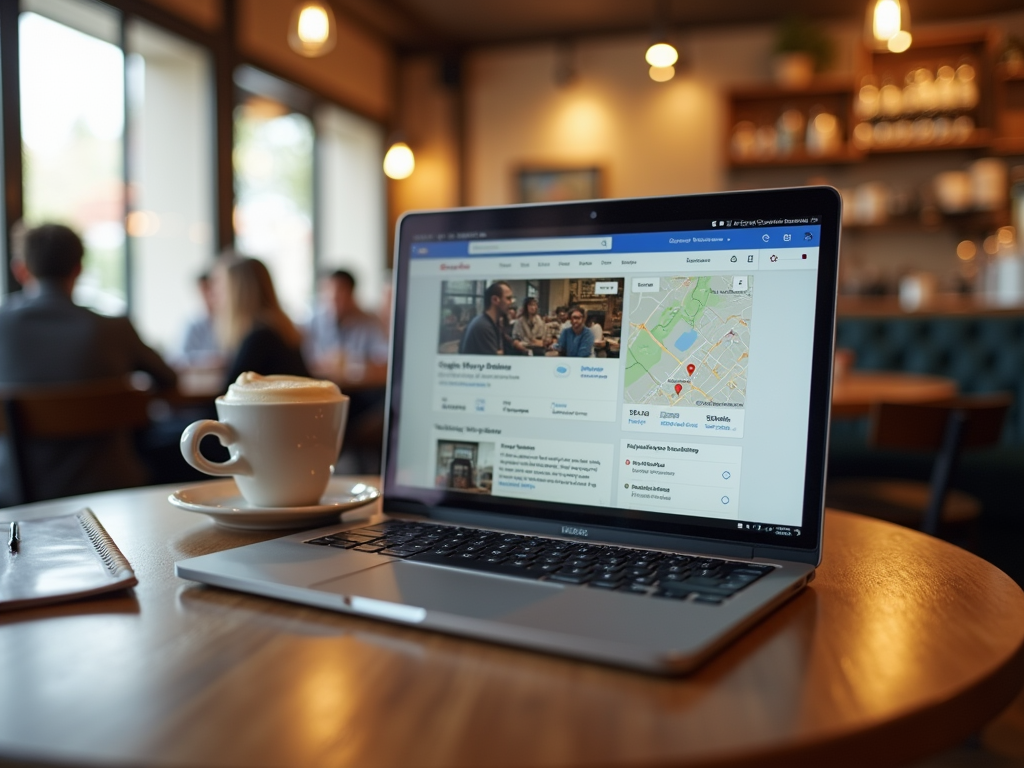Local SEO is an essential marketing strategy for businesses aiming to attract customers in their geographic area. By optimizing your online presence specifically for local searches, you can increase visibility, drive traffic to your website, and ultimately grow your business. In this article, we’ll explore effective strategies you can implement to boost your local SEO efforts and ensure your business stands out among competitors.
Understanding Local SEO

Local SEO is a specialized form of search engine optimization that focuses on optimizing a website to be found in local search results. When potential customers search for products or services in their area, local SEO ensures your business appears prominently in those results. Key factors defining local SEO include Google Maps listings, local citations, and relevance to location-based keywords. Proper implementation of local SEO can enhance customer engagement and improve conversion rates, making it a vital component of digital marketing strategies.
Claim and Optimize Your Google My Business Listing

One of the most critical steps in enhancing your local SEO is to claim and optimize your Google My Business (GMB) listing. This free tool allows businesses to manage their online presence across Google, making it easier for customers to find you. Here’s how to make the most out of GMB:
- Claim Your Listing: Ensure that you claim your business and verify your information to help customers find the right details.
- Complete Your Profile: Fill in all necessary information, including business hours, services offered, and contact information.
- Use High-Quality Images: Upload photos of your business, products, or services to make your listing more appealing.
- Encourage Reviews: Ask satisfied customers to leave positive reviews, as they can boost your credibility and visibility.
- Post Regular Updates: Share news, updates, or promotions to engage with your audience directly through your listing.
Another essential strategy for local SEO is optimizing your website for locally relevant keywords. This process involves researching and incorporating keywords that your target audience is likely to use when searching for your products/services in your area. Follow these guidelines to implement effective on-page SEO:
- Keyword Research: Use tools like Google Keyword Planner to find keywords that include local terms such as your city or neighborhood.
- Optimize Title Tags and Meta Descriptions: Ensure your business name, address, and key services are included in title tags and meta descriptions.
- Use Header Tags: Organize your content with header tags (H1, H2, H3) while incorporating local keywords.
- Optimize for Mobile: Ensure your website is mobile-friendly, as many local searches are conducted on smartphones.
Build Local Citations and Backlinks
Building local citations and acquiring backlinks from reputable local websites are crucial for enhancing your local SEO. A citation refers to any online mention of your business, such as directories or local websites. Here’s how to effectively build local citations and backlinks:
- List Your Business in Local Directories: Make sure you are listed on major directories like Yelp, Yellow Pages, and BBB.
- Engage with the Local Community: Sponsor local events or collaborate with other local businesses to gain relevant backlinks.
- Content Marketing: Create blog posts that are relevant to your community or local interest to draw attention from local sources.
- Directory Listings Consistency: Ensure that your business name, address, and phone number are consistent across all online platforms.
Leverage Social Media for Local Engagement
Social media platforms serve as powerful tools for local engagement, allowing businesses to connect with their target audience effectively. Here are several strategies to leverage social media for your local SEO efforts:
- Post Regularly: Share updates, promotions, and events to keep your audience engaged and informed.
- Utilize Geo-Tagging: Tag your location in posts to make them more discoverable by local users.
- Encourage User-Generated Content: Invite customers to share their experiences on social media and tag your business.
- Engage with Local Influencers: Partner with local influencers to broaden your reach and credibility within the community.
Conclusion
Implementing local SEO strategies is vital for businesses aiming to establish a strong presence in their communities. By optimizing your Google My Business listing, focusing on local keywords, building citations and backlinks, and leveraging social media, you can increase your visibility and drive more local traffic to your business. The key lies in consistent effort and engagement within your locality, which will ultimately lead to sustained business growth.
Frequently Asked Questions
1. What is the importance of local SEO for small businesses?
Local SEO helps small businesses reach their target audience within specific geographic areas, improving visibility and attracting customers who are likely to visit or purchase from them.
2. How can I find relevant local keywords?
You can use tools such as Google Keyword Planner, Ubersuggest, or SEMrush to identify keywords that include local terms and possess high search volume in your area.
3. Is Google My Business really necessary for local SEO?
Yes, claiming and optimizing your Google My Business listing is crucial, as it helps increase your chances of appearing in local search results and Google Maps.
4. How can I improve my online reviews?
Encourage happy customers to leave positive reviews by providing excellent service, sending follow-up emails requesting feedback, or offering incentives for reviews.
5. What role do social media platforms play in local SEO?
Social media platforms help businesses engage with their community and can improve local visibility through shares, comments, and geo-tagging, which enhances local search rankings.





